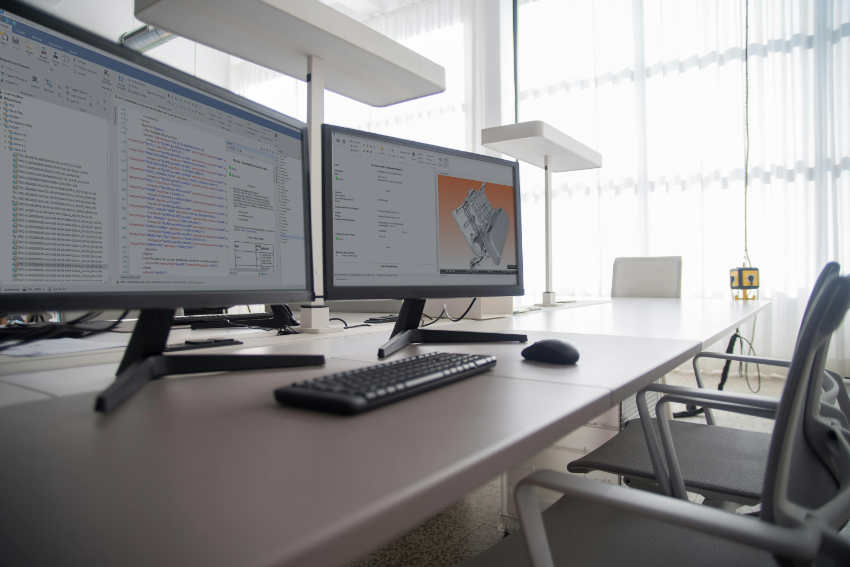Pennant International Group plc is a UK-based SME, and a provider of systems support software, known as the Auxilium suite, technical services and training systems. With over 60 years of experience, Pennant has served and continues to serve a global customer base, in defence, aerospace, rail, and other safety-critical sectors.
Pennant’s mission is to ensure systems are where they are needed, when they are needed and that they work. The company achieves this by driving operational excellence and readiness through forward-thinking, innovative solutions – all supported by the global teams.
Interview with Phil Walker, CEO of Pennant International Group.
What are the main areas of activity of the company?
Phil Walker: Pennant operates across three core segments. The first being system support software, via the Auxilium suite, offering configuration management, modelling and analysis support, and documentation management. For some in the industry, this specific area is known as Integrated Product Support (IPS). Why do you need IPS? It ensures assets/systems are operational and ready to be deployed, reduces total ownership costs, reduces downtime and extends asset longevity, to name a few.
Our second segment relates to our technical services offering, covering consultancy, training, bespoke development and support and maintenance.
The final segments is our training systems capability. Pennant is historically known for our training systems – hardware and software-based training aids for defence and aerospace to develop handskills and improve the training and education of operators and maintainers in the field.
What’s the news about new products/services?
P.W: The strategic focus has been the expansion of our Auxilium Suite. This involved the integration of GenS and Analyzer modules into one database, alongside further improvement capabilities to the individual tools. We have plenty of exciting developments in our roadmap coming soon too.
We’ve also had an exciting time with recent products developments in 2025 including, Virtual Battlespace Simulation, a solution developed with MSI Defence Systems, integrating real-world equipment with virtual environments for weapon training.

What are the ranges of products/services?
P.W: Pennant’s product and services portfolio is extensive, and we’ve already touched on the key capabilities including:
- System support software, a suite of Integrated Product Support (IPS) tools that collectively we call Auxilium. While Auxilium maybe new to market, it’s made up of three individual tools (GenS, Analyzer, R4i), which have been in the market for decades.
- Technical Service which supports all our software and training solutions, covering consultancy, support and maintenance, training and bespoke development.
- Training systems provide hardware, software and virtual solutions. They are critical for skills training for maintainers and operators of aircraft, land systems or ships.
Lastly, our dedicated international support services department has a core level of qualified and experienced engineers, providing us with the skills and knowledge to establish Pennant’s reputation for delivering highly professional, reliable and cost-effective customer support services.
What is the state of the market where you are currently active?
P.W: The defence market is in a transitional phase. We have seen increased Defence Spending, with the UK aims to reach 2.5% of GDP by 2027. We are expecting procurement Reform (faster acquisition cycles, SME inclusion and a focus on British based businesses), but also Global Uncertainty with the conflicts and geopolitical shifts are driving demand for readiness and resilience.
Pennant, like many mid-sized defence suppliers, is navigating contract delays and shifting procurement priorities.
What can you tell us about market trends?
P.W: Key trends shaping the sector:
- Defence Sector Priorities: Emphasis on operational readiness, data standardisation, and equipment availability.
- Digital Transformation: AI, automation, and cloud-based logistics are becoming standard.
- Integrated Capabilities: Defence systems are evolving from standalone platforms to networked ecosystems.
- Resilience & Onshoring: Governments are prioritising secure, domestic supply chains.

What are the most innovative products/services marketed?
P.W: Auxilium.
It’s a unique product on the market with one vendor supplying the full capability to customers / users.
With seamless integration between our supportability engineering GenS tool, and our system support modelling and analysis software Analyzer tool, these updates are designed to 𝐬𝐚𝐯𝐞 𝐲𝐨𝐮 𝐭𝐢𝐦𝐞, 𝐫𝐞𝐝𝐮𝐜𝐞 𝐜𝐨𝐬𝐭𝐬, 𝐚𝐧𝐝𝐞𝐧𝐚𝐛𝐥𝐞 𝐝𝐚𝐭𝐚-𝐝𝐫𝐢𝐯𝐞𝐧 𝐝𝐞𝐜𝐢𝐬𝐢𝐨𝐧-𝐦𝐚𝐤𝐢𝐧𝐠. Manage complex and mission-critical systems by identifying, defining, analysing, and quantifying through-life support requirements, providing you with the business intelligence you need.
A further highlight in this update is the new Business Intelligence Dashboards for managers and decision makers. These fully user-definable displays present your data in ways that simplify decision-making. Analysts can easily delve into the dashboard to populate supportability data sets and explore alternatives for trade-off and sensitivity analyses. All data and dashboard refreshes are driven by defining operational and support scenarios.
The Auxilium suite concept was first introduced to the market in 2024 with the first release of GenS and combines over 30 years of industry-leading software solutions.
The entire Auxilium suite is connected to a single Auxilium Repository, with a new and consistent backend technology stack (MS SQL). Boasting benefits of 𝐫𝐞𝐝𝐮𝐜𝐞𝐝 𝐈𝐓 𝐝𝐞𝐩𝐚𝐫𝐭𝐦𝐞𝐧𝐭 𝐛𝐮𝐫𝐝𝐞𝐧𝐬, 𝐭𝐡𝐚𝐭 𝐜𝐚𝐧 𝐫𝐞𝐝𝐮𝐜𝐞 𝐜𝐨𝐬𝐭𝐬,𝐦𝐚𝐤𝐢𝐧𝐠 𝐢𝐭 𝐚 𝐜𝐨𝐦𝐩𝐞𝐭𝐢𝐭𝐢𝐯𝐞 𝐜𝐡𝐨𝐢𝐜𝐞 𝐟𝐨𝐫 𝐨𝐫𝐠𝐚𝐧𝐢𝐬𝐚𝐭𝐢𝐨𝐧𝐬.
What estimations do you have for the second half of 2025?
P.W: The business has been working extremely hard to build the order book and to execute our strategic plan. We’re looking forward to further progress with strategy, including our go to market channels plans and we hope to see the conversion of the pipeline into orders.


